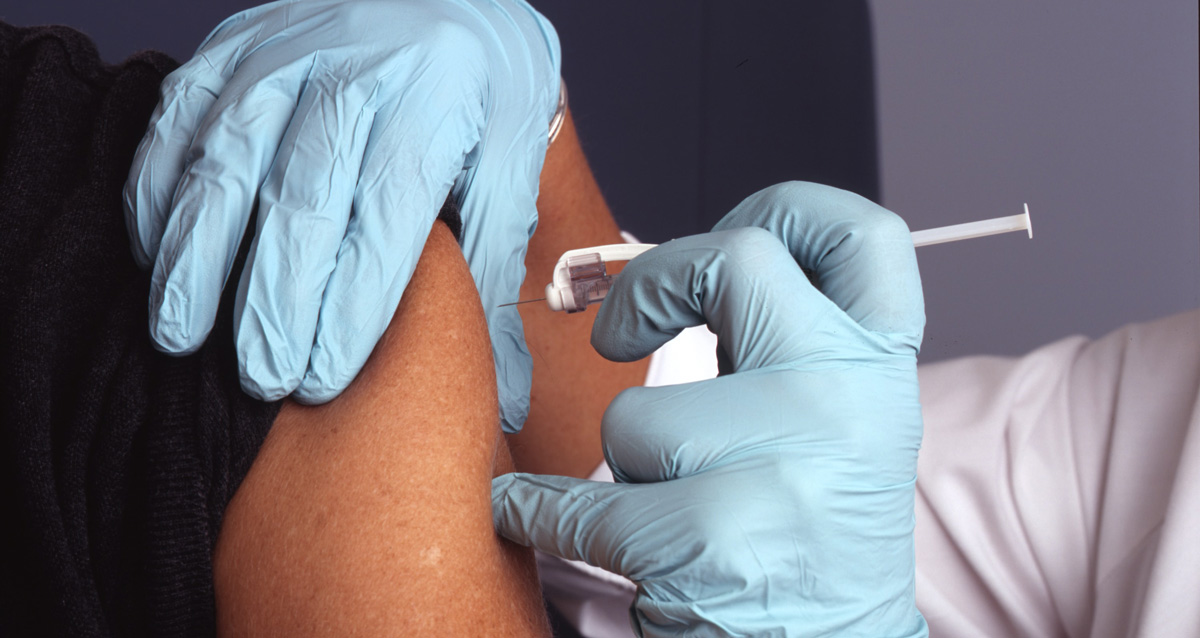
With more than 140 SARS-CoV-2 vaccines in development, the race is on for a successful candidate to help prevent COVID-19. But—according to a new paper published today in the Canadian Medical Association Journal (CMAJ)—there are challenges in evaluating the efficacy of these vaccines during the pandemic.

Dr. Manish Sadarangani
“The changing dynamics of the COVID-19 pandemic present a unique challenge for evaluating vaccines for the SARS-CoV-2 virus,” says the paper’s final author Dr. Manish Sadarangani, Sauder Family Chair in Pediatric Infectious Diseases at UBC’s faculty of medicine and Director of the Vaccine Evaluation Center at BC Children’s Hospital.
The paper, co-authored by Dr. Sadarangani, Dr. Soren Gantt, professor in the department of pediatrics at the University of Montréal, and lead author Dr. Bahaa Abu-Raya, a pediatric infectious disease physician at BC Children’s Hospital and graduate of UBC, outlines the logistic and scientific challenges associated with assessing vaccine candidates during a pandemic, and offers some potential solutions.
“The changing dynamics of the COVID-19 pandemic present a unique challenge for evaluating vaccines for the SARS-CoV-2 virus.”
Dr. Manish Sadarangani
The authors emphasize that the specific study population selected to evaluate vaccine efficacy must take into account their risk of infection, including use of social distancing practices, rates of pre-existing immunity from earlier COVID-19, and factors that influence the likelihood of severe COVID-19.
“The dynamic and rapidly changing pattern of virus exposure and level of population immunity during the evolving pandemic are potentially important confounders in the assessment of efficacy of SARS-CoV-2 vaccines,” says the paper’s lead author Dr. Abu-Raya. “This should be considered in sample size calculations for efficacy trials.”
“Researchers need to understand the immune responses generated after infection with this virus and whether they are protective, as this will help to inform the development and evaluation of these vaccines,” adds Dr. Sadarangani.
The authors also emphasize the need to test vaccines in vulnerable populations, including seniors, health care workers, people of African heritage and those with risk factors for severe disease and who may have a different response than younger, healthier trial participants.
Key considerations for evaluating SARS-CoV-2 vaccines:
- Adequate sample sizes are needed to demonstrate effect of a vaccine in reducing disease, and may need to be revised based on rates of SAS-CoV-2 transmission in study populations;
- Public health interventions such as social distancing may reduce transmission and affect ongoing assessment of COVID-19 vaccines;
- The baseline level of immunity could influence a trial outcome. For example, the benefit of a highly efficacious vaccine may not be evident in a population with high levels of previous exposure later in the pandemic;
- In some cases, COVID-19 might be worse in people who have been vaccinated (called antibody-dependent enhancement (ADE)). This should be monitored as vaccine-related ADE may only be evident with large numbers of vaccinated people exposed to the virus.
A version of this story original appeared on CMAJ.